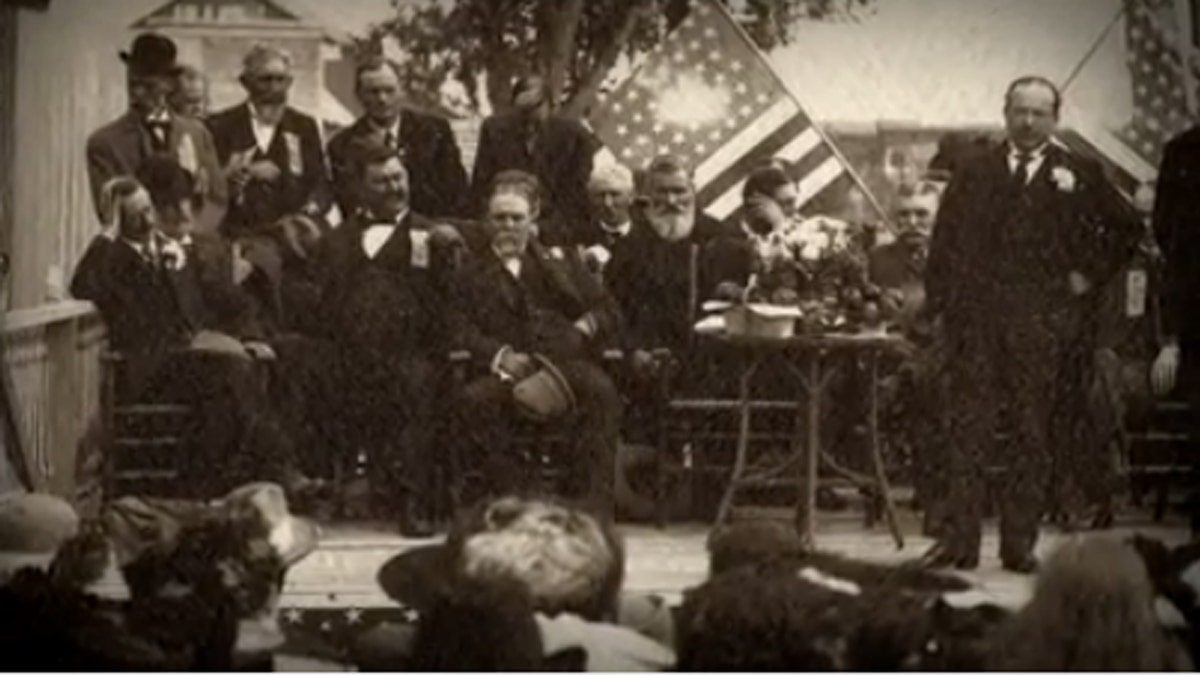
(pbs.org)
As a Latino and DREAMer – or undocumented immigrant brought to the U.S. as a child – I have often been troubled by the identity of Latinos as society views us, as government views us and as we view ourselves. "Latino Americans," the PBS documentary, highlights a glimpse of the struggles and character that Latinos have lived throughout American history. But my experience connects me with the deep roots of our broader community in the U.S. that explains why immigration is an intimate issue for Latinos.
While no single documentary can showcase the rich history of any group, it helps to bring a human voice to many perspectives which are uniquely Latino. This helps to shed light on some of the historical narrative that has developed around the Latino identity, and continues to shape our present push for immigration reform and greater representation in politics.
Many of the historical circumstances described in "Latino Americans" are much the same as they were at various points in United States history. For example, the story of a Oaxaca mother – who after losing her home and family packed her clothing and children and traveled a long and dangerous road north during the Mexican Revolution – mirrors the stories of many who flee violence at the border to the United States. The journey was long and nearly killed them as they walked the same sandstorms in the same deserts that so many still die in.
From the Cubans and Mexicans who fled the violence of revolution, to the Puerto Ricans who still struggle with the question of statehood, every wave of Latin Americans has added a layer of diversity to the country, and had their own hardships in assimilating.
My journey was not so different. I came to the United States when I was five years old after my father passed away. My mother risked everything for the American Dream for her children, something any loving mother would do.
Like the immigration stories of today, much of the story of the Latino experience depicted in "Latino Americans" involves loss and separation. While Mexican immigrants found a warm welcome at the border if they were strong enough to be agricultural workers in the Southwest during boom years, this “welcome” has now yielded to record deportations under the Obama administration.
When public deportations were not enough to entice foreign workers to leave quickly enough for the administration, the government started to offer free train tickets back to Mexico when the Revolution was over. Then they pushed harder, going into Latino neighborhoods and telling families that they would be denied welfare at a time when many had become dependent upon it. This is echoed in the plans to deny undocumented immigrants even basic social services today, such as when Sen. Marco Rubio (R-FL) eliminated the Child Tax Credit for undocumented immigrants, or when immigrants are singled out as not eligible for government benefits as part of citizenship requirements.
The story of Emilia Castaneda, who shares how her father was deported during the Depression, is echoed today as record deportations means more families divided across national lines. Her decision to return to the United States to make a life for herself, while still returning to Mexico to visit and keep her father in her life, is the same one made by millions of immigrants faced with the same decisions after a family member is deported today.
Latinos, as a diverse group tied together with a colonial history, language and social perception, have faced similar societal challenges associated with their identity. From the Cubans and Mexicans who fled the violence of revolution, to the Puerto Ricans who still struggle with the question of statehood, every wave of Latin Americans has added a layer of diversity to the country, and had their own hardships in assimilating.
"Latino Americans," while necessarily limited to only the most seismic changes and largest groups in Latin American history, is an interesting, broad, challenging history of immigration and assimilation. Most of all, it shows the hardships that many Latinos continue to see in their everyday lives as we struggle to "fit" in to a society which, while increasingly accepting, still presents its difficulties plainly. The discussions to reform our outdated immigration system represents an effort to revitalize the American Dream not only for Latino immigrants but for all Americans that still believe in this nation.
